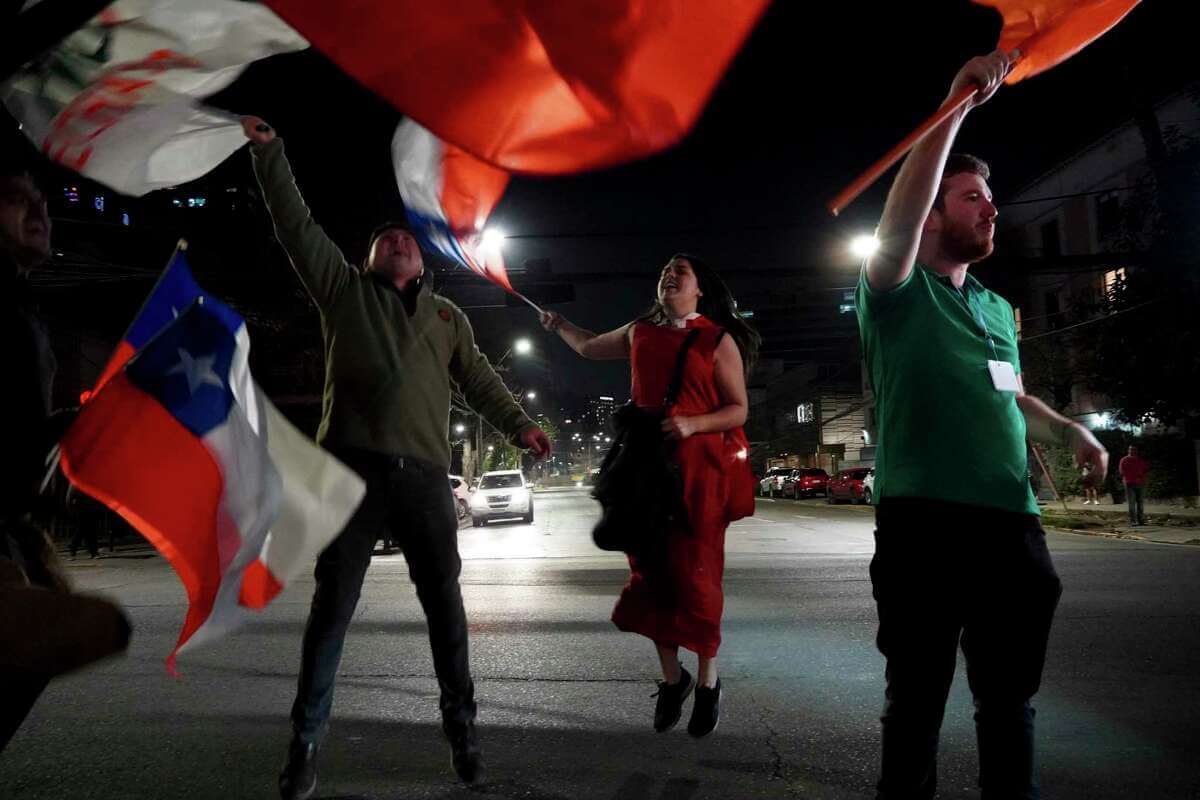An overwhelming majority of Chileans voted against a new constitution that was touted as one of the “world’s most progressive charters” and would have finally moved the country on from the Pinochet era.
During Sunday’s referendum vote, about 62% of voters rejected the 170-page, 388-article proposal. Voting was mandatory in the referendum, which concluded a three-year process.
President Gabriel Boric, whose party and government supported the new charter, vowed to work with Congress and other stakeholders to draft a new text. He said, “We have to listen to the voice of the people. Not just today, but the last intense years we’ve lived through … That anger is latent, and we can’t ignore it.” He added that it is clear that citizens “were not satisfied” with the proposal.
Los anhelos de cambio y dignidad exigen a nuestras instituciones y actores políticos que trabajemos con más empeño, diálogo, respeto y cariño, hasta arribar a una propuesta que nos interprete a todas y todos. Para allá vamos. Que viva la democracia y que viva Chile! pic.twitter.com/f5rQv2G5mJ
— Gabriel Boric Font (@gabrielboric) September 5, 2022
Addressing the nation on Sunday, Boric said the vote showed that the country wants the political leaders and institutions to have “more determination, more dialogue, more respect” to finalise a proposal that represents all Chileans.
To this end, he said the drafting committee must seek to put forth a document that “unites” the country.
Conceding defeat, the spokesperson for the approval campaign, Karol Cariola, reassured that her team would continue to work on a new text. She said, “We are committed to creating conditions to channel that popular will and the path that leads us to a new constitution.”
Similarly, another spokesperson for the approval camp, Vlado Mirosevic, said, “We recognise this result and we listen with humility to what the Chilean people have expressed.”
Centre-left and right-wing parties that opposed the proposal also agreed to negotiate a new text. The spokesperson for the Citizens’ House of Rejection said that the referendum’s result was a “path of hope” and called on Boric to “be the president of all Chileans” and “move forward.”
The constitutional reform was introduced in response to large-scale student-led protests in 2019 over a 5-cent hike in public transport prices. The protests eventually morphed into a wider movement against income and gender inequality, insufficient social programmes, underfunded public healthcare, and the erstwhile presidency of Sebastián Piñera. The unrest resulted in over 30 deaths.
VIDEO: Chileans opposed to changing the constitution celebrate in Santiago.
— AFP News Agency (@AFP) September 5, 2022
Chileans voted on whether to adopt a new constitution that would break from the era of Augusto Pinochet's dictatorship, foster a more welfare-based society and boost Indigenous rights pic.twitter.com/2qq8UOOI9B
Against the backdrop of widespread and prolonged public discontent, Pieñera acceded to calls for a new constitution. In October 2020, over 78% of Chileans voted in favour of drafting a new magna carta to replace the constitution put in place in 1980 under the dictatorship of Augusto Pinochet, which lasted from 1973 to 1990. Thereafter, in May 2021, the country voted for independent and opposition candidates to form the drafting committee.
The existing constitution has been heavily criticised for overwhelmingly favouring the free market system at the expense of adequate expenditure on education, pensions, and healthcare. It also fails to effectively protect rights of the Indigenous population, which comprises 13% of the country’s 19 million population.
Then, in July, after around one year of deliberations, the 154-member Constitutional Convention handed over its proposal to Boric.
Today Chileans are voting on a new constitution to replace the ultra-right-wing one created by the US-backed fascist Pinochet dictatorship.
— Benjamin Norton (@BenjaminNorton) September 4, 2022
The 200-billionaire Jeff Bezos-owned Washington Post board is lobbying against it. Their first line warns that the US needs Chile's lithium pic.twitter.com/NkUwXBhMqc
The proposed text was lauded for its focus on enhancing social rights, climate action, gender, and Indigenous rights.
The charter would have taken apart the highly privatised water rights system and set up a new national healthcare system.
Furthermore, it sought to legalise abortion, empower labour groups, and strengthen regulations on mining.
With regards to gender equality, it required that there be an equal number of male and female employees in all public institutions and companies.
In addition, it proposed the devolution of several key powers from the president to regional governments, and allows the president to call for immediate re-election just once; similarly, members of congress and the house may only be re-elected once for a total of two four-year terms.
At the same time, it would have eliminated the Senate and established a Chamber of the Regions. The president would have had less power to unilaterally propose tax reforms, while Congress would have been allowed to repeal laws and citizens may submit bills. Indigenous communities, meanwhile, would have been given a parallel justice system headed by their own ancestral authorities.
The proposed constitution also established over 100 new rights, including the right to housing, education, clean air, free legal advice, and internet access.
However, centre-left and right-wing groups argued that declaring Chile as a ‘plurinational’ state, establishing autonomous Indigenous territories, and prioritising the environment and gender equality “leans too far to one side and does not have the vision of all Chileans.”
Given that Boric won the election back in March with a fairly narrow margin of 56% against his right-wing competitor José Antonio Kast, the results of the referendum show that Chile remains a highly polarised country.
It also reflects his wider popularity, given that his approval rating has been steadily dropping.
Some opposition lawmakers have said that it may be wiser to simply amend parts of the existing constitution rather than drafting an entirely new document. However, Boric remains firmly committed to the process and is meeting with other party leaders today to chart a path forward.

